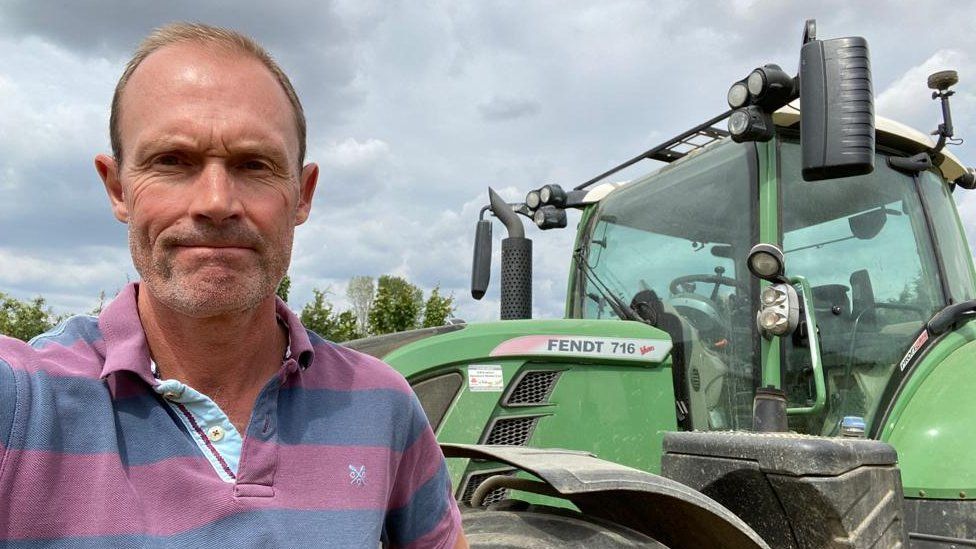ARTICLE AD BOX
By Becky Morton
Business reporter
 Image source, Andy Barr
Image source, Andy Barr
Andy Barr watched a 50-acre field of barley on his farm go up in flames
People are being urged to take extra care to avoid causing fires in the countryside during hot weather, with some farmers saying they have lost thousands of pounds worth of crops.
The National Farmers' Union (NFU) said fires were one of the biggest risks faced by farmers during heatwaves.
One farmer told the BBC he lost around £40,000 worth of crops when one of his fields went up in flames last week.
The hottest ever temperature in the UK was recorded last Tuesday, with thermometers hitting 40.3C in Lincolnshire and more than 30 places reaching temperatures above the previous record.
David Exwood, vice president of the NFU, said even as the weather gets cooler, the lack of rain has increased the risk of field fires.
"There needs to be extreme care when people are out in the countryside because anything can catch fire in this weather," he said.
Andy Barr, who owns an 800-acre farm in Lenham, Kent, had a 50-acre field of barley destroyed by a fire last Saturday.
Although he is hoping to claim on insurance, Mr Barr said the crop was worth around £40,000.
Watch: Fire rages in Kent field
He said it was a huge shock to watch his hard work go up in flames.
"You spend a year growing it and you really like to see the fruits of your labour this time of year. So that was very disappointing," he said.
"But I have got over the shock now and we've just got the slightly concerning times to see what the insurers come up with."
Mr Barr was also grateful to the firefighters and neighbours who helped stop the fire spreading further by ploughing crops that had not yet gone up in flames to make a fire break.
Rural insurer NFU Mutual said the majority of farmers insured their buildings, machinery and crops, and said it had seen a "marked rise" in claims for farm fires during the heatwave in recent weeks.
Last year it estimated the cost of farm fire claims to be in excess of £70m.
It urged people not to drop used matches or cigarettes, not to use disposable barbecues on grass or moorland and not to drop litter as discarded bottles can focus sunlight and start a fire.
Image source, Andy Barr
Image caption,The fire in Lenham destroyed nearly 50 acres of barley
The NFU's David Exwood said the dry, hot weather was also leading to reduced yields and quality of some crops such as potatoes, sugar beet and maize.
He said this could lead to shortages of some products on shop shelves in the short term and increased prices for customers.
The longer the dry weather continues, the greater the impact, he added.
On his own farm in Sussex, Mr Exwood said his maize was struggling due to the lack of rain and he expected a "dramatically reduced yield", which could cost him tens of thousands of pounds.
Image source, NFU
Image caption,Hannah Buisman's family farm grows oats, wheat and barley
Hannah Buisman, who works on her parents' farm near St Albans in Hertfordshire, said they had also seen reduced yields of hay and cereal crops due to the heat.
She said this was hitting the farm financially, at a time when costs for things like energy were going up.
Ms Buisman said the family had also put off combining crops last week because they felt it was too dangerous in the hot weather. If combines hit a bottle left in a field or flint it can strike a flame and cause a fire, she explained.
She urged people not to leave litter in fields, adding that a neighbouring farm had lost 240 acres of crops in a fire.
"It's a worst nightmare, especially in years as volatile as these," she said.

 2 years ago
82
2 years ago
82








 English (US) ·
English (US) ·